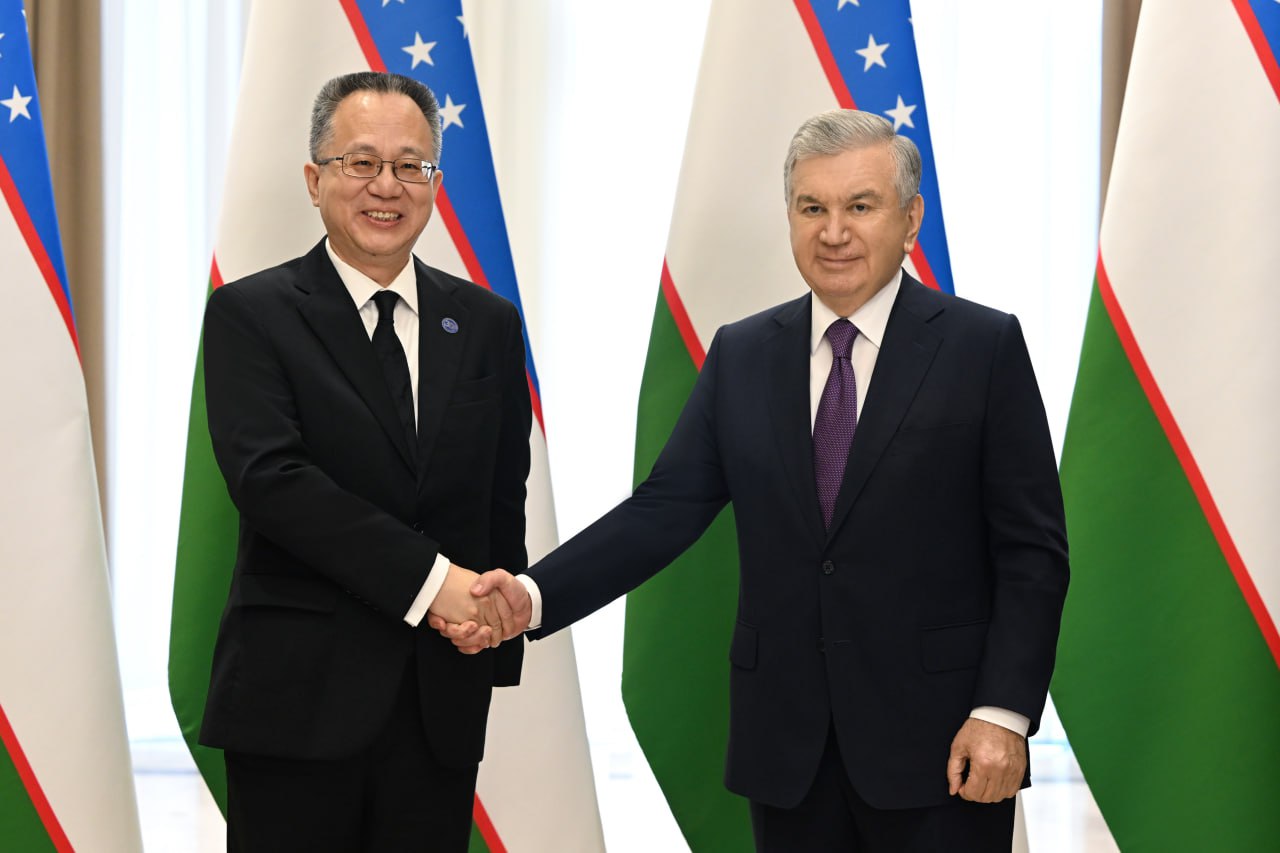BAKU, Azerbaijan, October 15. Of late, Uzbekistan has been turning over a new leaf with large-scale economic transformations, where international financial institutions are calling the shots. For a landlocked country reliant on transit routes, foreign investments have become not just a source of capital but a tool to overcome geographical limitations and strengthen competitiveness. Transport corridors, energy modernization, and digital integration are areas where support from international banks enhances Uzbekistan’s competitiveness and strengthens its position in the global economy.
In this scenario, teaming up with the Asian Development Bank (ADB) has taken on a whole new meaning, turning into a key player in the game of economic transformation in the country. The aggregate quantum of ADB capital infusion into Uzbekistan’s economic landscape has surpassed the $14 billion threshold, positioning it as the preeminent recipient within the Central Asian sphere. In juxtaposition, Kazakhstan has garnered approximately $6 billion, whereas both Kyrgyzstan and Tajikistan have attracted sub-$3 billion allocations each. This scenario underscores ADB’s robust endorsement of the transformative initiatives underway in Uzbekistan and the nation’s pivotal strategic significance within the regional framework.
This situation is a result of Uzbekistan’s economic promise, coupled with its open-door policy, financial sector shake-ups, and the steady hand on the wheel of its strategic direction.
On this account, it is noteworthy to recall the speech by Ali Malik, Senior Investment Specialist at the Asian Development Bank, at the “Green Energy Week of Azerbaijan and Central Asia” event.
“The key factors for attracting international investors to Uzbekistan are regulatory certainty, the availability of banking transactional documentation, and risk mitigation mechanisms such as partial credit guarantees and blended finance,” said Ali Malik.
According to Malik, the breakthrough in attracting investors to Uzbekistan began with the 100 MW Navoi Solar project, implemented with IFC support, after which the ADB financed major projects, including Summer Solar.He pointed out that keeping a steady hand on policy is the name of the game, while ADB’s partial credit guarantees put investors’ minds at ease, knowing that if the offtaker drops the ball, their obligations are backed by a AAA-rated institution.
The development of renewable energy has become a strategic ADB focus in Uzbekistan. Among new initiatives is the construction of a 250 MW solar power plant with an energy storage system in the Alat district of the Bukhara region. This is the country’s first facility combining solar generation with a Battery Energy Storage System (BESS), which will stabilize electricity supply and increase the share of renewable energy in the national energy mix. Such projects demonstrate Uzbekistan’s transition from simply adopting technologies to creating its own model of sustainable growth.
ADB's assistance extends beyond the energy sector. In May 2025, the bank and the government signed a program to implement 23 new projects worth a total of $3.6 billion for 2025–2026. The initiative encompasses domains such as educational frameworks, hydrological distribution systems, transportation networks, digital innovation ecosystems, and fiscal infrastructure—sectors where the ramifications of reform are notably discernible over extended time horizons. In the fiscal year 2024, the financial institution earmarked a substantial $1.05 billion for the initiation of five novel governmental initiatives, which encompasses the inaugural $250 million climate credit designed to mitigate the economy's susceptibility to climate perturbations while advancing low-carbon technological innovations.
Augmenting its strategic initiatives, ADB concurrently prioritizes the transportation domain. Mayank Choudhary, the Director of the Private Sector Department at ADB, articulated that Uzbekistan has emerged as a pivotal nexus within the regional transport corridors. In the past few years, the nation has garnered upwards of $12 billion in capital influx, with over $3 billion sourced directly from the ADB—predominantly allocated towards the enhancement of transportation infrastructure, specifically in the realms of roadway and railway systems.
All in all, these initiatives are a step in the right direction, showcasing Uzbekistan’s aim to put its best foot forward in bolstering economic sovereignty and staying ahead of the game. The evolution of sustainable energy paradigms, the deployment of electronic customs frameworks, the digitization of governmental service delivery, and engagement in cross-border initiatives are constructing a novel infrastructure for the national economic landscape. Kanokpan Lao-Araya, the Chief of the ADB Representation in Uzbekistan, articulated that the institution is poised to perpetuate its facilitation of the nation’s assimilation into the global economic framework, particularly in the context of its preparatory endeavors for accession to the World Trade Organization (WTO).
Industry specialists assert that accession to the WTO will serve
as a pivotal milestone for Uzbekistan in amplifying its ingress to
international markets, mitigating tariff impediments, and
establishing equitable frameworks for foreign capital influx. The
ADB is proactively engaged in this initiative through the provision
of expert consultations, capacity-building for specialists, and
facilitation of legislative reform processes.
In juxtaposition to alternative global entities, the ADB paradigm
exhibits a distinctive methodology. The World Bank prioritizes the
enhancement of social infrastructure, while the European Bank for
Reconstruction and Development emphasizes industrial growth and
private sector engagement. Concurrently, the Islamic Development
Bank concentrates on the facilitation of Islamic finance mechanisms
and the execution of social initiatives. ADB synergistically
integrates these domains, methodically advancing infrastructure
frameworks, catalyzing private sector investment, underpinning
sustainable development initiatives, and facilitating regional
integration mechanisms. This holistic strategy positions Uzbekistan
as a pivotal collaborator and a benchmark of effective
transformations for the broader Central Asian landscape.
The results are evident: in the last eight years, Uzbekistan’s
GDP has shot through the roof, and foreign direct investment has
hit the jackpot at $35 billion. Transport and energy projects—from
the China–Kyrgyzstan–Uzbekistan railway to photovoltaic
installations in Navoi and Samarkand—are transforming the nation
into a pivotal transit and energy nexus bridging Asia and Europe,
enhancing its emergent geo-economic stature and yielding consistent
transit revenue streams.
The convening of the 59th Annual Meeting of the ADB Board of
Governors in Samarkand underscored the global stakeholders' robust
confidence in President Shavkat Mirziyoyev’s transformative policy
framework. This event transcends mere symbolism, showcasing
Uzbekistan's evolution into a pivotal nexus for the formulation of
a novel economic paradigm within the Central Asian landscape.
Today, Uzbekistan is the apple of ADB’s eye in its regional strategy. The combination of economic potential, consistent reforms, and strategic location makes the country ADB’s main partner. Financial, technical, and advisory support from the bank plays a decisive role in accelerating structural reforms, modernizing transport and energy infrastructure, digitalizing the economy, and improving the investment climate. Thanks to ADB programs, Uzbekistan gains access to modern technologies and best international practices, facilitating a faster transition to a “green” economy, expanding private sector participation, and enhancing the national economy’s resilience to global challenges.
Stay up-to-date with more news on Trend News Agency's WhatsApp channel







